According to the Oxford dictionary, the word “MASTERY” means comprehensive knowledge or skill in a particular subject or activity.
However, the word “grandMASTER” can somewhat be affiliated with the world of chess. Grandmasters title in chess is the highest attainable title by a chess player.
There are 256 Grandmasters in Russia alone. Looking at these numbers, one could think that chess originated in Russia.
Meanwhile, chess originated in India back in the sixth century. Love, passion, and recognition of the game’s significance are reasons why Russia has come out as the most dominant nation in chess today.
Their number of Grandmasters means that Russia currently has about 17 times more grandmasters than Africa as a whole!
Africa has had 15 grandmasters (Woman Grandmasters exempted) since the introduction of the title in 1950.
It took 43 years for Africa to have a taste of this title as Tunisian Grandmaster Bouaziz Slim broke the duck in 1993 when he attained the required norms to seal the title to his name.
We classify these 15 grandmasters into 4 regions of Africa:
1. North Africa
2. East Africa
3. South Africa
4. West Africa
North Africa
North Africa is majorly an Arab region in Africa that is notably distinct from the sub-Saharan region.
There’s also a distinct difference in chess performances as North Africa appears to be the most prominent chess region on the continent.
The North African countries with grandmasters include:
A. Egypt

Egypt heads the rest of Africa in terms of chess dominance. They have a total of 7 grandmasters; 6 open grandmasters and one woman grandmaster. They are as follows:
1. Amin Bassem
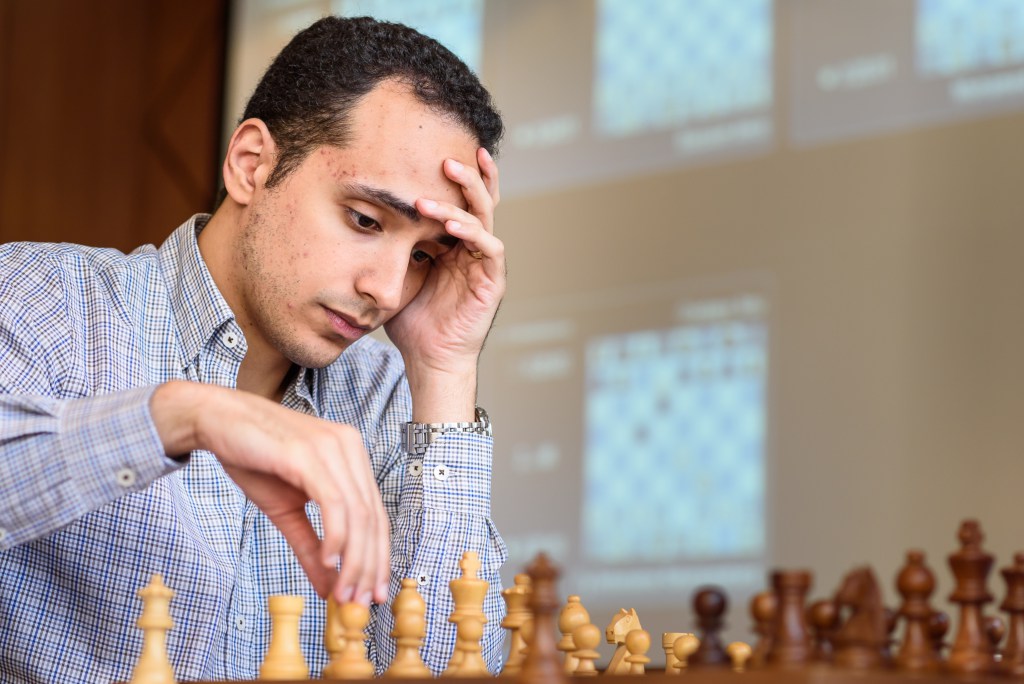
GM Amin Bassem is the highest-rated player in Africa. With a peak rating of 2712 and a present rating of 2703 as of July 2021, he is the only player to have crossed the 2700 mark in the continent.
The 32-year old GM is the most decorated and feared chess player in Africa. He achieved the International Master title in 2004.
Bassem became a Grandmaster shortly after, in 2006 when he attained the 2500 rating requirement, having already acquired the three GM norms.
He is one of the remarkable few who have been able to keep both his chess career and medical profession balanced.
2. Adly Ahmed
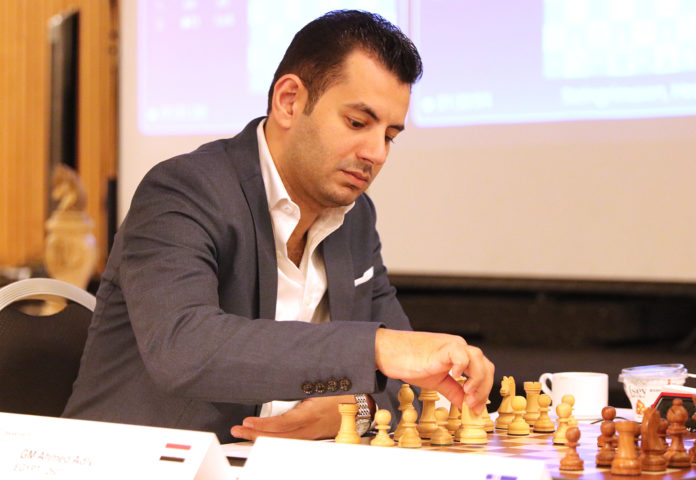
Adly is another Egyptian Grandmaster who has made his mark on the continent. He currently has a standard rating of 2625, ranking him at number 153 in the world and number 2 in Africa. The 34-year-old GM achieved his Grandmaster title back in 2005.
He won the African Individual Chess Championships in 2005, 2011, 2019, and 2021—a joint total along with compatriot GM Bassem Amin.
To conclude, he recently won the African Individual Chess Championship, edging out his fellow countryman GM Bassem with a better tiebreak score.
3. Shoker Samy
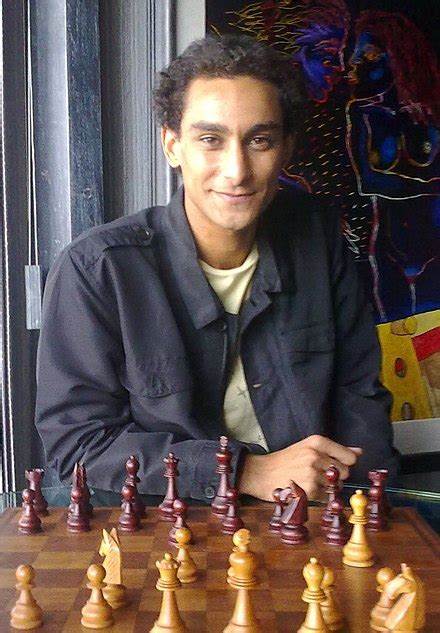
Samy Shoker started playing chess at the age of four, and he went on to become a Grandmaster in 2014 at the age of 27. Born in France, he plays for the Egyptian Chess Federation and is currently the third-highest rated in the country.
He is the winner of the 2016 Rapid African Chess Championship in Uganda. Shoker did win the 2013 Rapid Arab Championship, and he won African Zonal 4.2 which qualified him for the FIDE world cup tournament in 2013.
Furthermore, Shoker is a strong player who has been able to defeat top players, the likes of Shakhriyar Mamedyarov, Sergey Karjakin, Yu Yangyi, and Arkadij Naiditsch.
4. Adham Fawzy
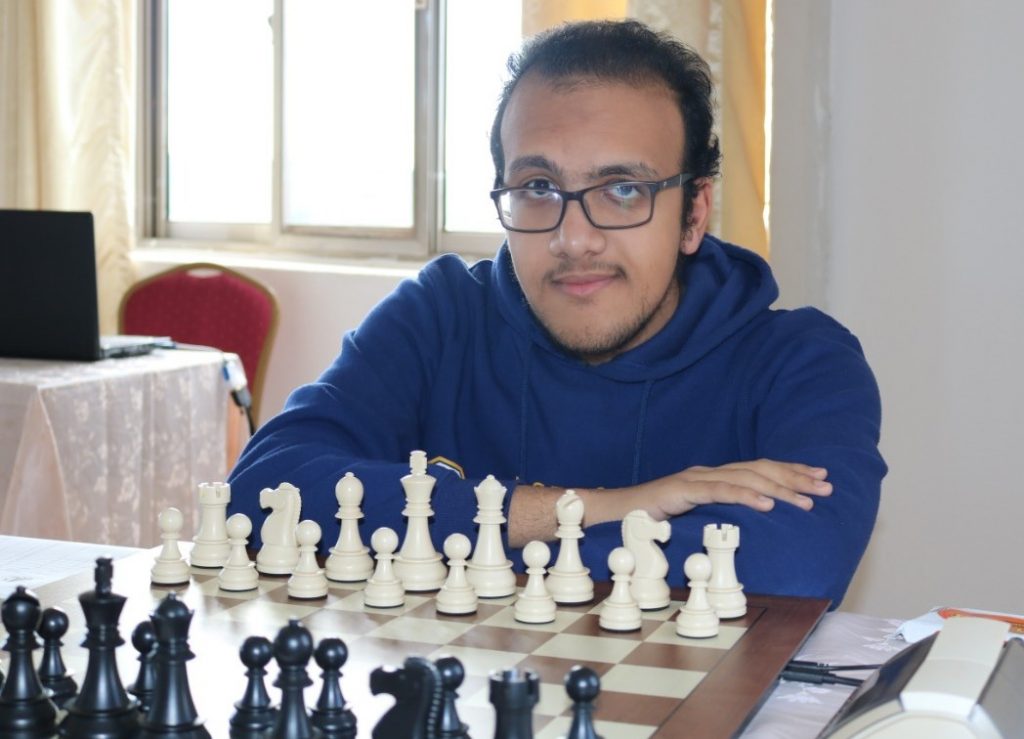
Adham is the youngest grandmaster in Africa. Born in the year 2000, the 21-year old became a FIDE Master at 12, an international master at 15, and recently got the grandmaster title in 2019.
With a rating of 2485, he is the fourth-highest rated player in Egypt and 7th in Africa.
In addition, he has won the African Junior Chess Championships multiple times.
5. El-Gindy Essam
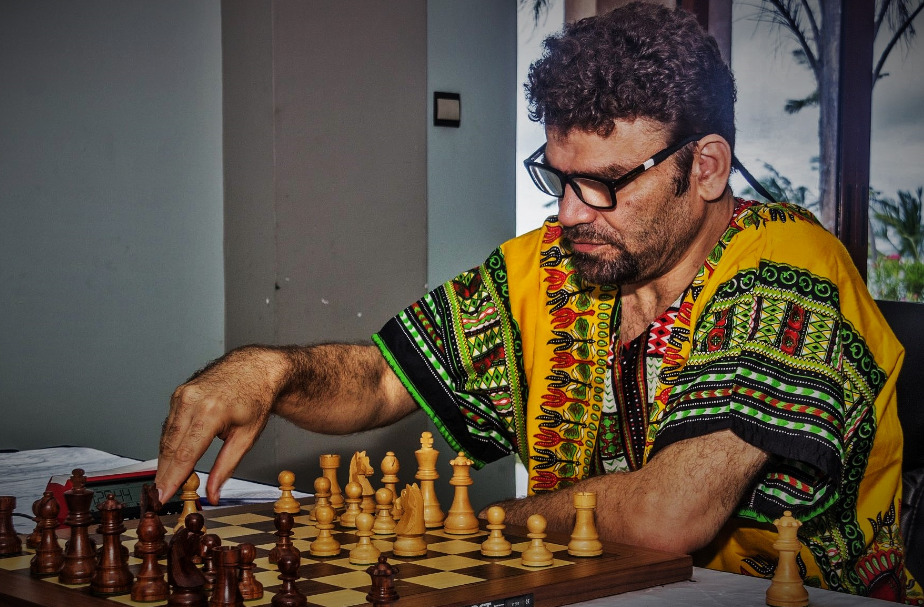
El-Gindy Essam is an Egyptian Grandmaster and FIDE trainer who was born in Cairo, in 1966. Undoubtedly, he’s a player with vast experience, and a peak rating of 2527,.
He won the Egyptian chess championship in 2002, became African champion in 2003, and subsequently represented Egypt in three chess Olympiads (1996, 1998, 2014). Finally, he got his title in 2008.
6. Hesham Abdelrahman
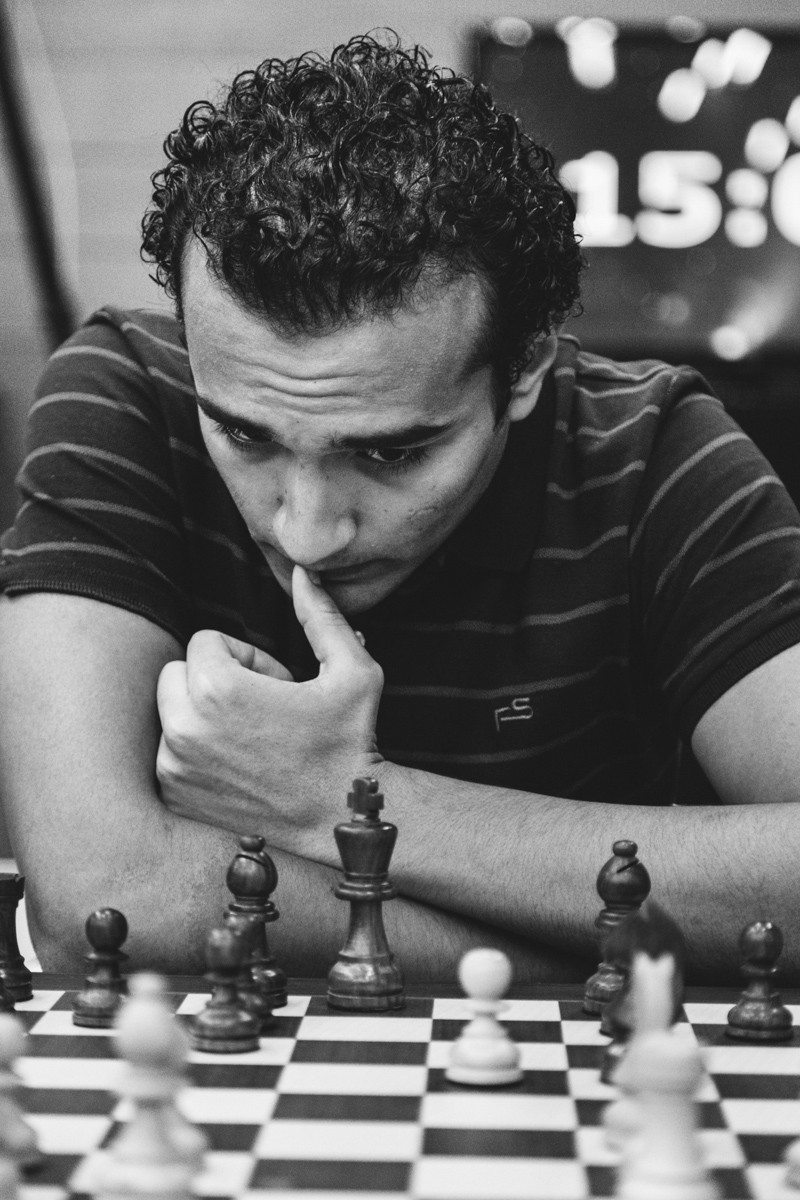
Hesham ranks the sixth among Egyptian Grandmasters today according to FIDE, with a 2397 rating. Born in 1992, he claimed his GM title in 2016 when he won the African Chess Championship.
B. Algeria
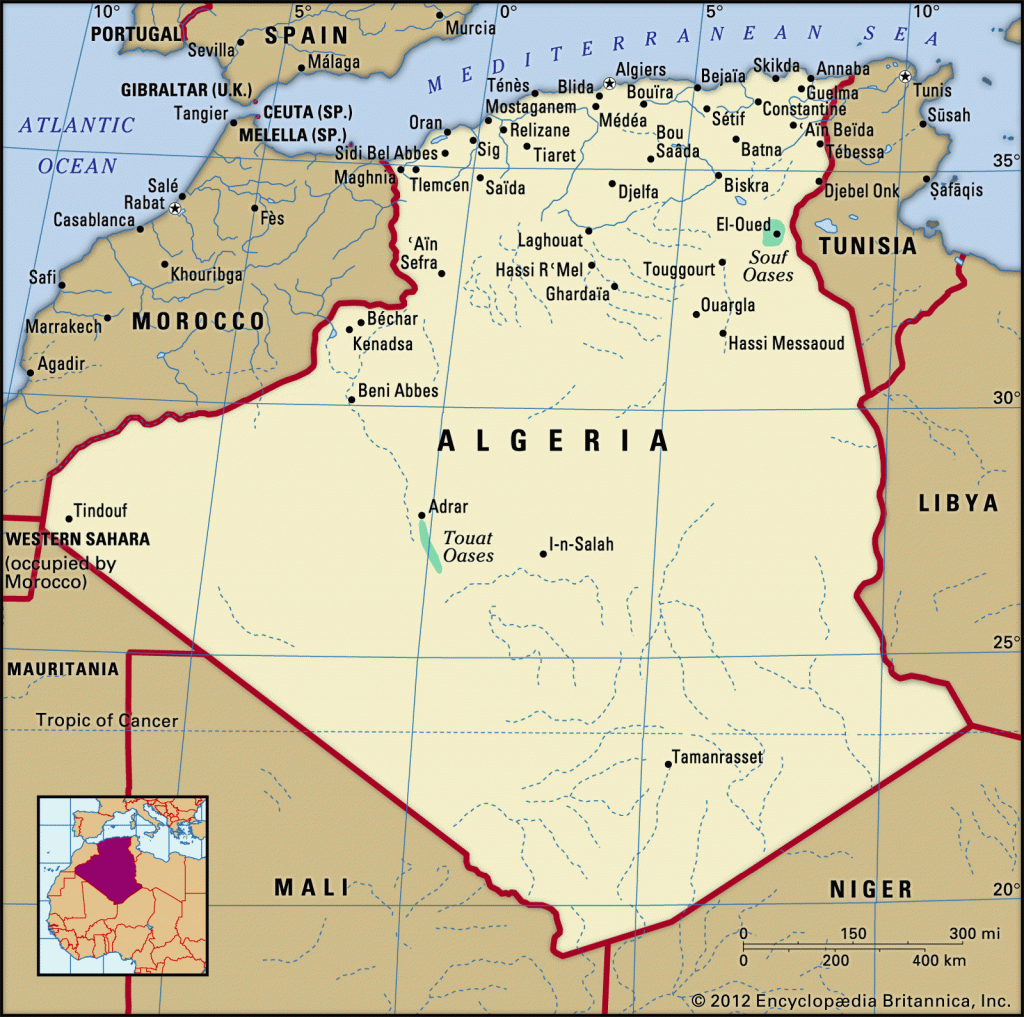
7. Bellahcene Bilel

Bellahcene is another young and brilliant player that has been able to achieve the Grandmaster title. Born in France, he decided to change his federation from France to Algeria.
At a rating of 2502, the 23-year old is the highest-rated player in the country today. He has had several significant victories which include: 2018 Algerian Championship, winning the FIDE Zone 4.1 Championship in 2019 with a perfect 9/9, thereby qualifying for the FIDE World Cup that year.
8. Rizouk Aimen
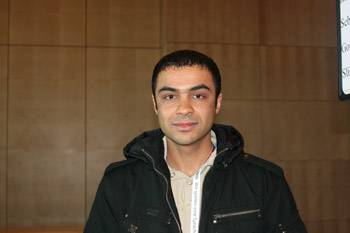
Aimen is an Algerian chess grandmaster with a standard Elo rating of 2436.
The 41-year-old player who got his Grandmaster title in 2007 has represented his country in the 2008 chess Olympiad including winning the Algerian Chess Championship in 1999. Three times winner of the Arab Junior Championship (1994, 1996, 1998).
Finally, one interesting fact about Aimen is that he has a twin brother, Ryad Rizouk, an International Master who won the Algerian Championship in 1994.
9. Mohamed Haddouche
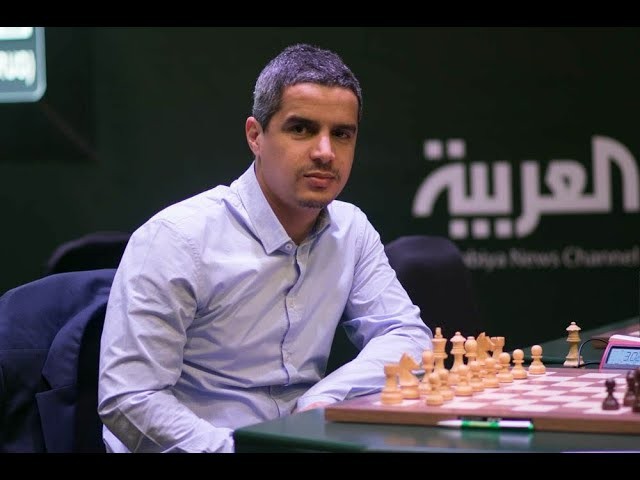
Born on 19th August, 1984, Mohamed Haddouche is an Algerian chess grandmaster who has had a successful career in chess.
He has won the Algerian Chess Championship eight times, most recently in 2017.
Haddouche has represented Algeria in five Chess Olympiads and has won three medals in chess events at the African Games and the Pan Arab Games.
C. Tunisia
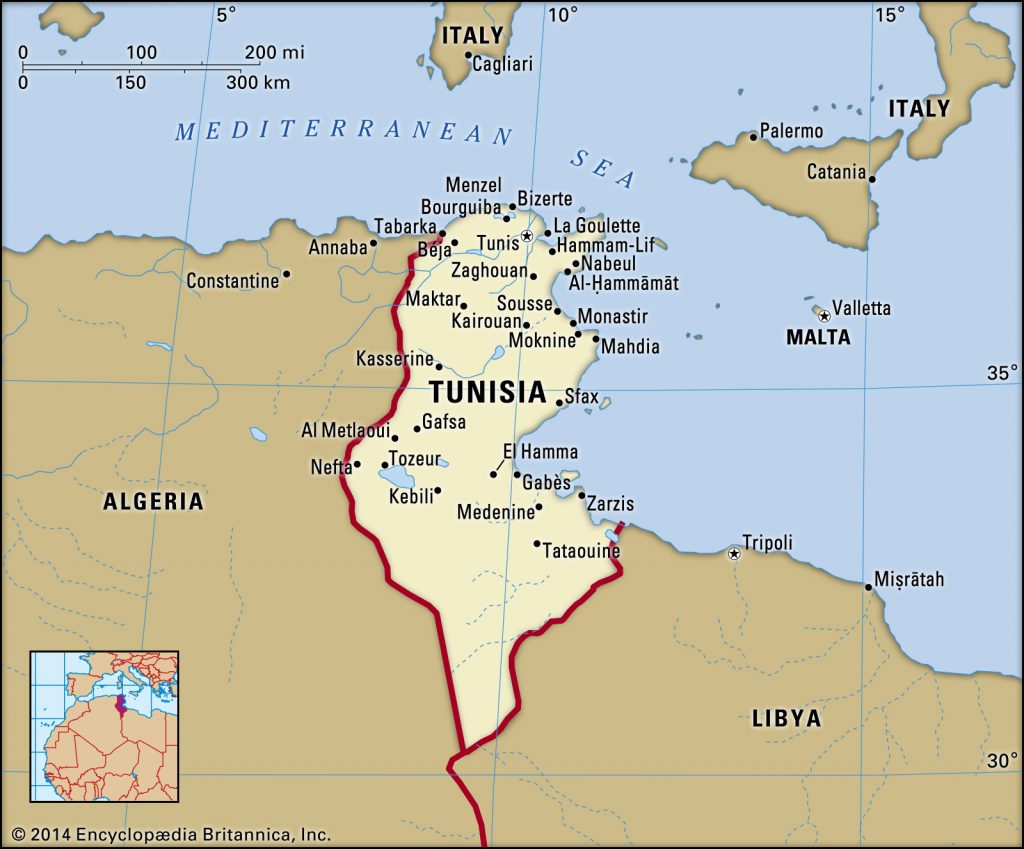
10. Bouaziz Slim
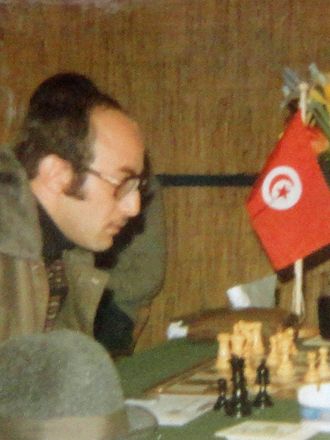
This Tunisian veteran was the first-ever grandmaster in African history! He gained his title in 1993 after completing his third GM norm at a Dutch tournament.
At the age of 71, GM Slim is still active in chess, although he’s now more into organizing.
In conclusion, he is regarded as an African chess legend who has paved the way for chess development in the continent.
11. Zaibi Amir
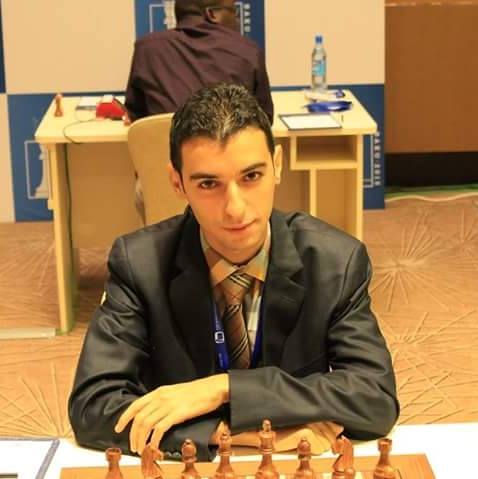
Amir Zaibi is a 33-year-old Tunisian Chess Grandmaster.
By winning the 2019 International Arab Championship in Mostaganem, he obtained the grandmaster title on the 4th of December, 2019.
His standard Elo rating is 2398, making him rank as the number 1 Tunisian player as of August 2021.
However, his path to the grandmaster title was quite a steep one as he became a Candidate Master(CM) in 2009, a FIDE Master(FM) in 2013, and an International Master in 2015.
12. Belkhodja Slim
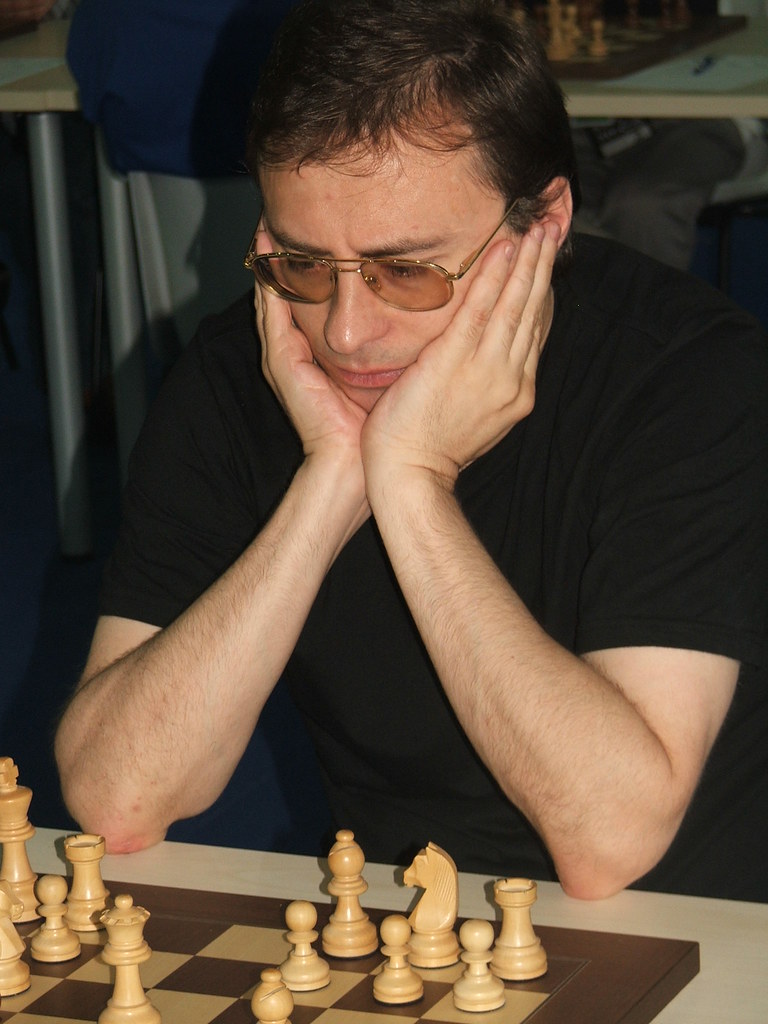
This 58-year old Tunisian grandmaster earned his title in 2002 when he won the Arab Chess Championships. He notably represented Tunisia in six chess Olympiads (1982, 1984, 2002, 2004, 2006, and 2008).
D. Morocco
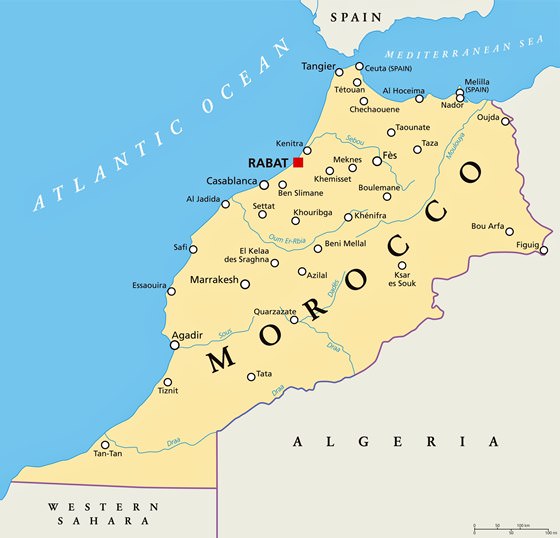
13. Hicham Hamdouchi
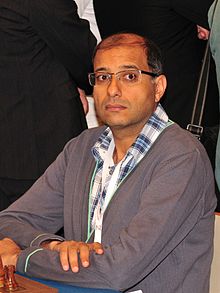
Hicham is another top grandmaster. He presently ranks as the third-best African chess player as of August 2021 with a standard rating of 2561.
Born in 1972, he earned his Grandmaster title in 1993 to become the third-ever African grandmaster. He notably won the Moroccan chess championship an astonishing 11 times.
The Moroccan-French grandmaster has won some significant tournaments including that of the African Chess Championship in 2001.
East Africa
In a clockwise motion, we move from North Africa to East Africa where just one federation has ever produced a grandmaster.
Zambia
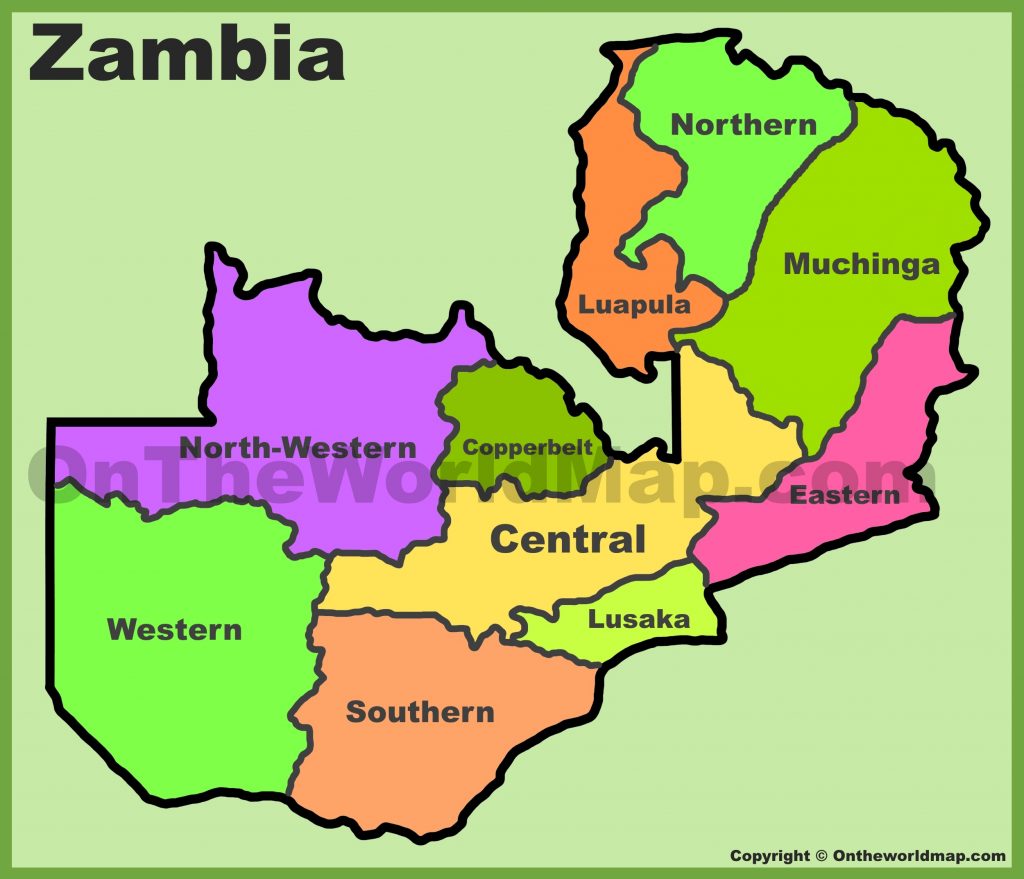
14. Amon Simutowe
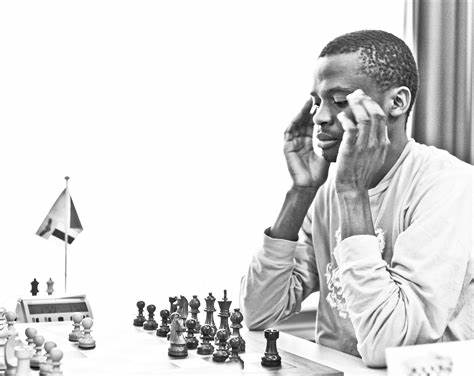
Amon Simutowe is a Zambian Grandmaster and the first from Sub-Saharan Africa. He got his title in 2007 after completing his third GM norm in a tournament in the Netherlands.
He’s ranked number 11 in Africa if you consider both active and inactive players.
Even more, he has inspired an upward surge of chess in Zambia, East Africa, and even the entire sub-Saharan region of Africa.
Sadly, the Zambezi Shark is no longer an active player, but we certainly hope he returns to dazzle growing chess spectators.
Southern Africa
South Africa

15. Kenny Solomon
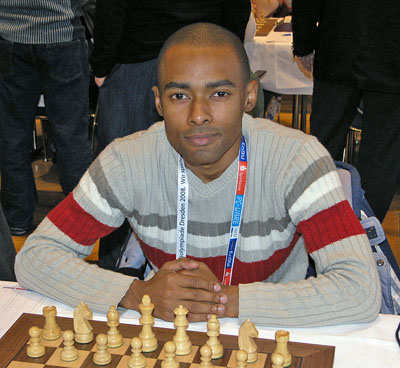
He is the first-ever South African to become a grandmaster in chess and only the second-ever African from the sub-Sahara to claim this title.
GM Kenny acquired the title by winning the African Chess Championship in December 2014 under the dominant reign of the Egyptians.
Lastly, Solomon Kenny played in the Chess World Cup in 2017 but got knocked out by world elite, Fabiano Caruana.
West Africa
Unfortunately, no grandmaster has ever emerged from this region of Africa. Although, significant efforts are being made to get a grandmaster to emerge from Nigeria soon. An initiative set up by AGM Austin Apemiye called Go For A Nigerian Chess Grandmaster, aims to help realize this dream.
Many tournaments focused on youth development in chess have been put up by Danhypro Chess Limited and other chess entities.
Woman Grandmasters in Africa
Mezioud Amina
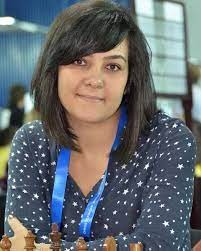
She is the only WGM in Algeria. After 15 years of being a Woman International Master, Amina Mezioud finally claimed her current title in 2020.
Her most notable victory was when she won the Women’s Arab Chess Championships in 2006.
Wafa Shahenda
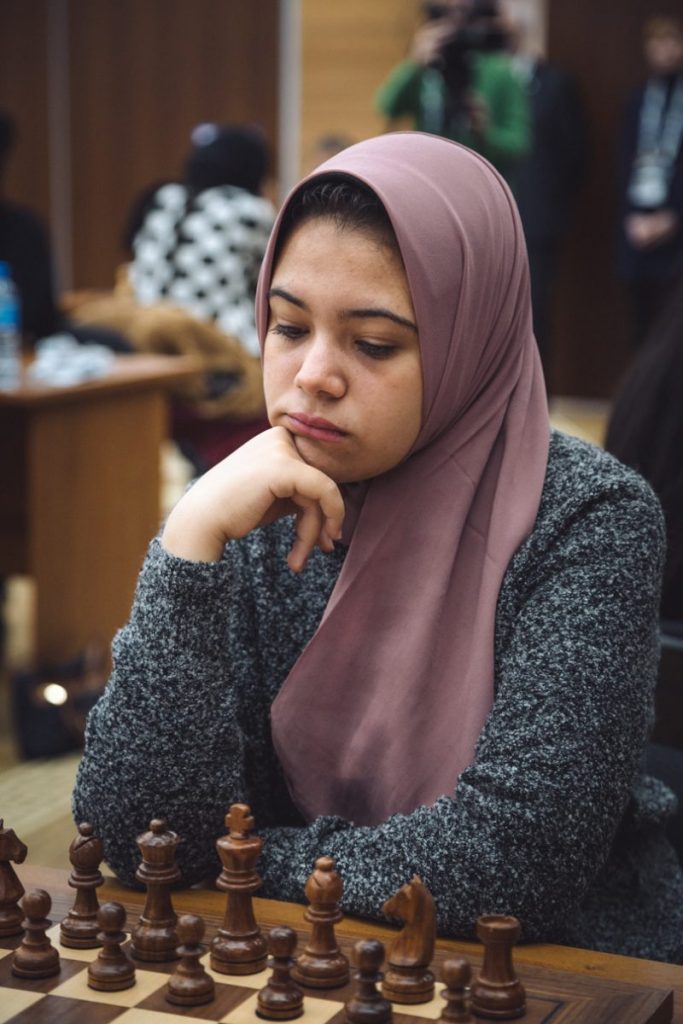
She is a Woman Grandmaster(WGM) in Egypt. She has won the Women’s African Chess Championships twice—in 2017 and 2018. At just 23 years of age, WGM Shahenda is bent on taking African chess for women to the next level.
Wafa Shrook
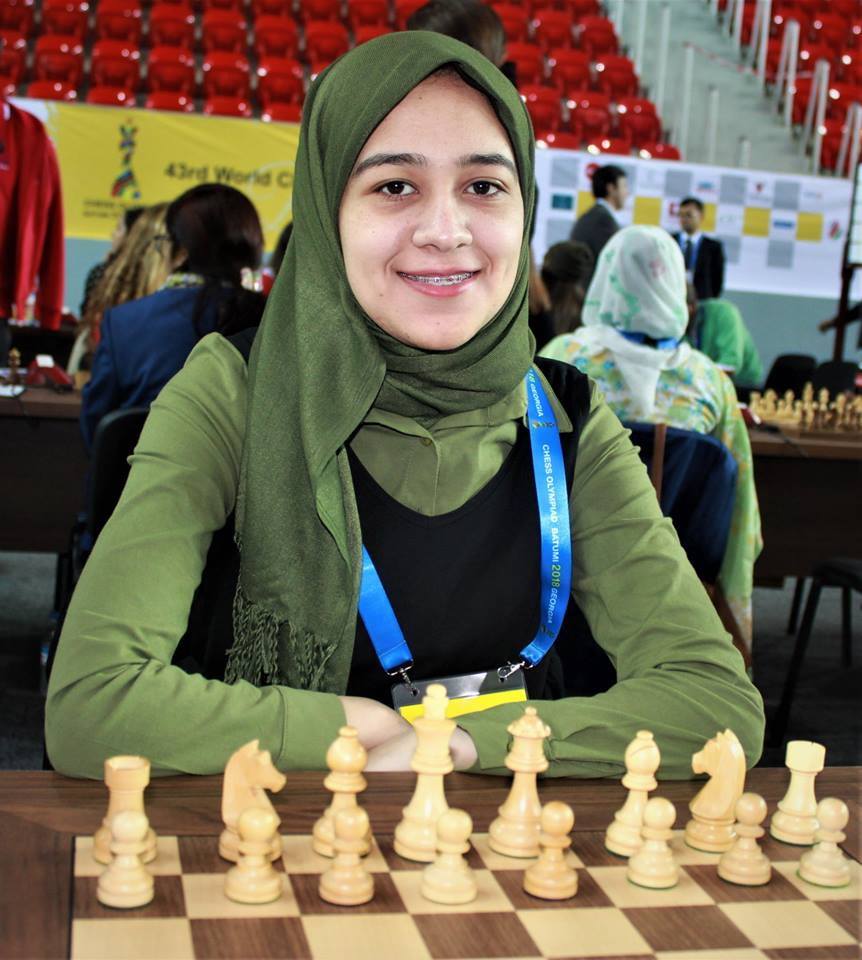
This 24-year old earned her Woman Grandmaster title in 2013 when she won the Women’s African Chess Championships. Along with her sister, Shahenda, the duo is raising the bar for African women in chess.
Why Africa Has A Comparatively Low Number Of Chess Grandmasters
1. Economic Underdevelopment
When people are poor and hungry, their common instinct is focused on how to survive each passing day.
Under these conditions, many Africans might not possess the luxury of playing chess or any other leisure activities such as games or sports.
In the mean time, many amateur chess players in Africa find it hard to improve in the game due to a lack of adequate training and provision of materials.
There is also a lack of exposure to gain the much-needed experience and zeal to go far enough to become Grandmasters even though the love and passion for chess are present.
Furthermore, economic underdevelopment is to also be blamed for the poor recognition of chess in Africa. Primary and secondary schools are excellent tools to instill chess deep into the African community.
When children learn how to play the game of chess from their early years, they grow up with understanding and flair.
Chess, in turn, provides value to the children by improving their concentration and critical thinking. Due to underdevelopment, African schools do not give enough priority to implement chess in their curriculum.
2. Language barriers
Europe speaks 200 languages spoken. Due to the level of development in the continent, the majority of Europeans speak two or more official languages.
This makes communication easy across the continent. There are about 150 indigenous languages spoken in North America. This is another indication of easy means of communication aided by the level of development.
There are 2000 languages spoken in Africa which is 20 times the number, in contrast with languages spoken in Europe. The level of communication is not aided by the low level of development in the continent as many languages are even yet to be officially recognized, let alone translated.
Lastly, some African people live in severe under-civilization and recreation such as chess will be difficult to introduce in such regions.
If chess cannot be instilled in such regions, it erases any hope of a grandmaster from such regions. It is an interesting fact to note that many regions in Africa fit this description.
3. Corruption
Corruption is a disease that has immensely plagued the sub-Saharan region of Africa.
The level of corruption is so deep that it runs deep into practically all organization in the country—chess included. Revenue generated to be used for necessary financing would go amiss.
This occurrence directly harms the sect, and spurts of growth are either slowed down, halted, or reversed.
The mission to achieve a chess grandmaster would be hampered due to corruption because more tournaments to motivate players to improve will not be held, materials for training will not be provided, even publicity to raise awareness towards chess will not be funded.
How More African Grandmasters Can Be Produced?
1.Teach more people how to play chess
The higher the chess population, the higher the probability of having chess grandmasters.
In terms of ratio, the number of grandmasters to the overall population in Egypt can be compared to the number of grandmasters to the overall population in the US.
This implies that more awareness through teaching is needed to amplify the growth of chess.
Teaching should be for all ages but specifically targeted towards children because they have less on their plate as regards life activities and hence, would harbor an undivided focus.
Furthermore, instilling chess into the curriculum of school pupils and students would go a long way to the development of chess in Africa.
Ahbimanyu Mishra recently broke the record of being the youngest ever chess grandmaster at just age 12. This indicates that children can attain this gargantuan title.
2. Special training for chess players
Mastering a skill involves a lot of training. There are several forms of training routines that help an individual achieve and maintain mastery as quickly as possible.
In chess, there are ways to rapidly develop understanding and mastery of the royalty game.
Asides from playing frequently and competitively, practicing puzzles without the aid of sight are special training to consider. This act is blindfold chess.
Blindfold chess aids the brain to attain a higher level of memory retention and recollection speed. These perks are the benefits gained from regular training.
In addition, another means of special training is organizing a chess-themed question-and-answer session after theoretical study. This also helps with recollection speed and helps cement understanding.
There are other special means of training to ensure the emergence of more African grandmasters.
3. High-profile tournament engagements for promising talents
In a setting where chess is taught frequently, there is bound to be exceptional shows of wit, especially among children. This is an indicator that a child might possess the potential to be a chess sensation.
Such children might possess naturally laudable recollection and analytical skills required to master the game of chess.
Training is a great way to hone their skills, but they also need competitive action. If they must be the best, they must learn from the best.
This is why African children with notable talents ought to be encouraged via grants and sponsorships to partake in high-profile tournaments where some of the best of their age group also partake in.
Subsequently, they pick up valuable experience and get to mingle with diverse players, acquainting themselves with various playing styles. This level of all-roundedness could be crucial to becoming a grandmaster in chess.
4. Constant motivation via counseling and incentives rewards
Losing a game of chess or missing out on a chance to glory might carry more damage than many coaches evaluate.
Bad moments will arise when things will not go as planned, but the ability to steer through the disappointment is key to reaching one’s goal.
Similarly, chess players must be encouraged never to quit playing chess or quit being fierce towards achieving an aim regardless of hurdles in their way.
Frequent counseling is like fuel for the mind that keeps many players going. They channel their frustration and make out something magnificent from it.
Also, attaching incentives to achievements is a good means of motivating players to improve their performance.
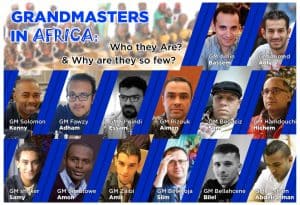
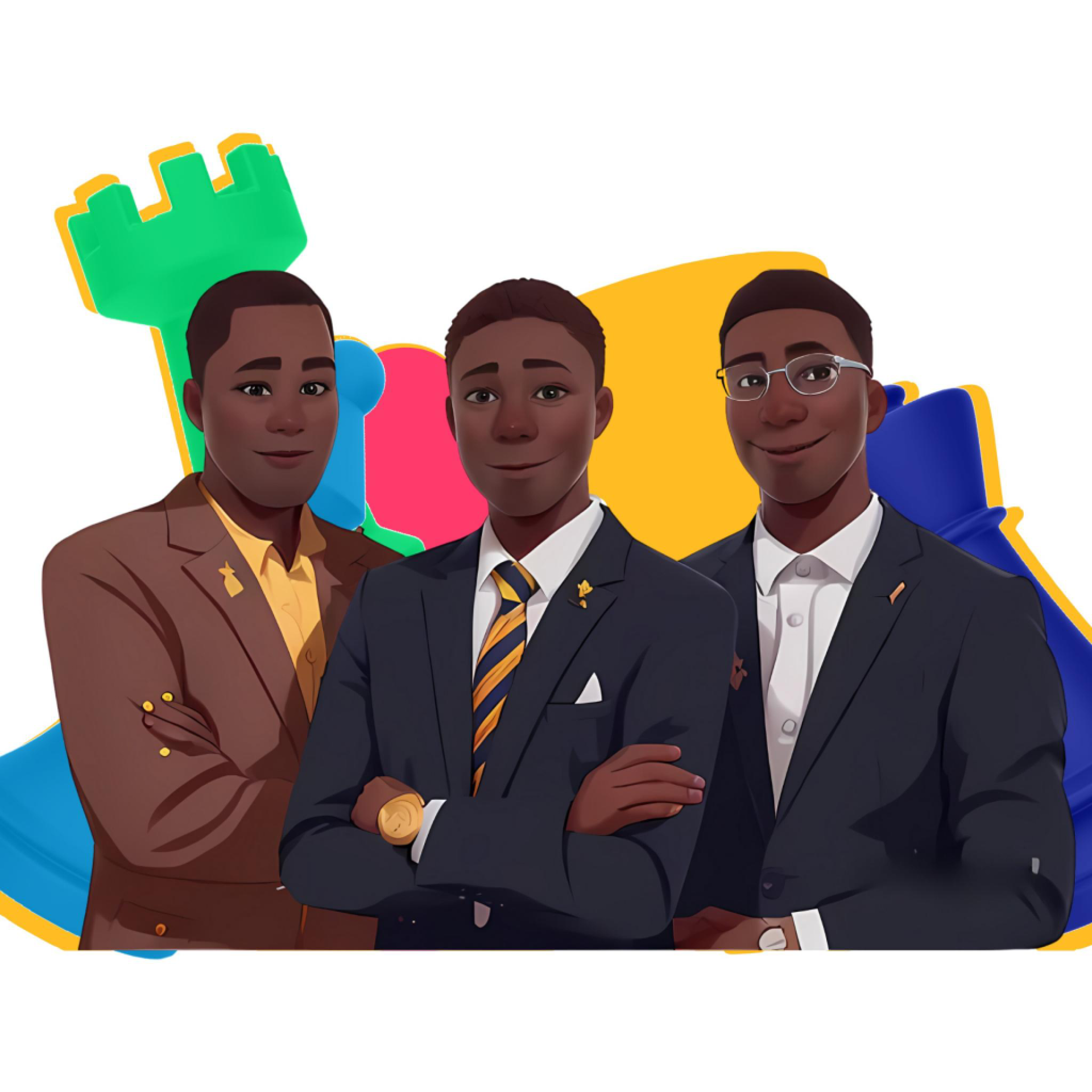



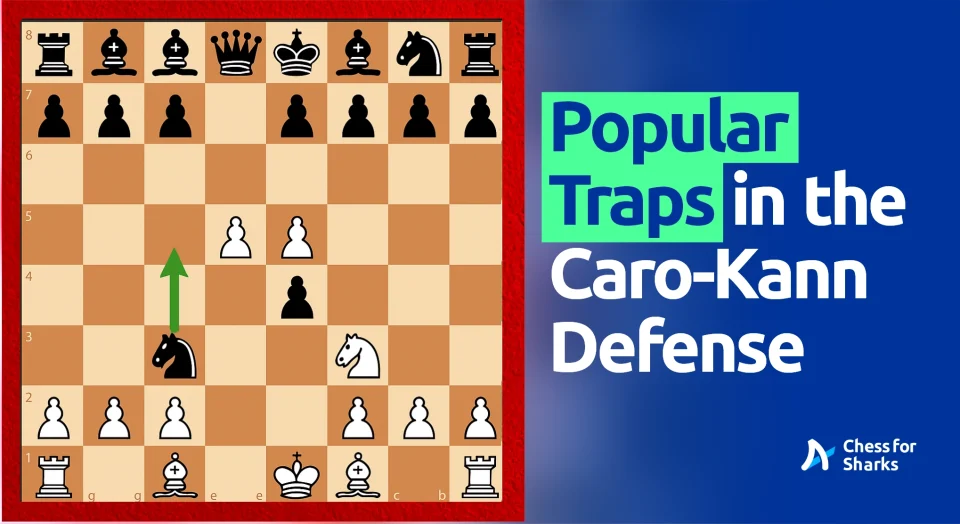
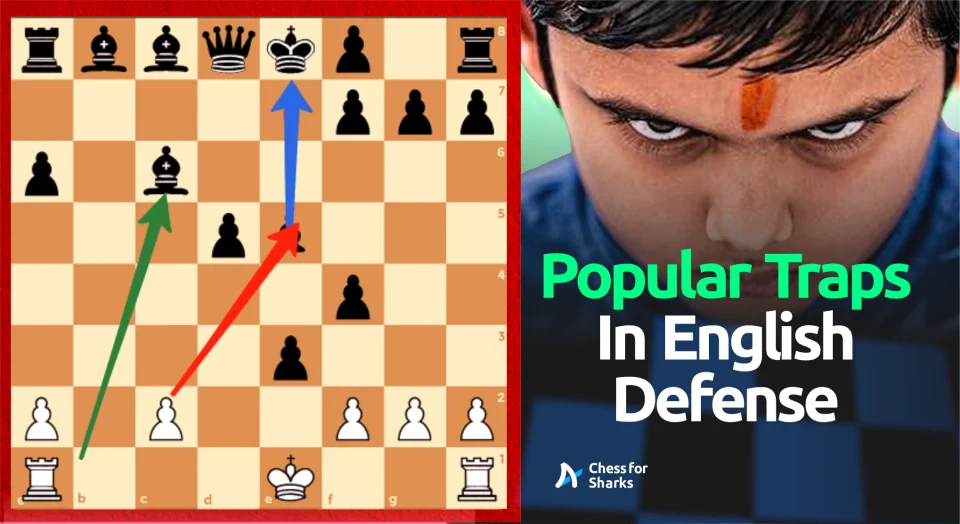
12 comments
Clement Bewaji
I came across this informative article this morning. Please permit me to publish it in our magazine “Chess Update”.
Chessforsharks Editorial Team
Sure Clement, you’re free to do that… Just remember to give credits to us.
Checkmate your day ♟️
James Bedu Graham
I have no doubt that Black Africans have the ability to become super great world class Chess masters and Champions no doubt about it.
I am James Bedu Graham and i am 39 year old Champion from Ghana.
In 2023 i sure hope that more black people will become world class Chess Champions.
First of all our international Schools must lead the battle for chess to be played totally in their spare time you know.
Andrew Crosby
A marvelously informative coverage of chess in the African continent. It helped me tremendously to understand the problems that the game faces in developing talented players
Chessforsharks Editorial Team
Glad you found it helpful ♟! Do share the post with others too.
Cosmos Chipepo, an African
Well written and researched although you could give credit on the images. I love it, keep going! ❤️
Chessforsharks Editorial Team
Thanks for reading Cosmos!
Daaim Shabazz
The image of GM Kenny Solomon was taken by Daaim Shabazz (The Chess Drum)
The image of GM Amon Simutowe was taken by Fred Lucas.
Chessforsharks Editorial Team
Thanks for the update Daaim, we added that in!
Bright C Bwalya
The two reasons why chess can not be improved
1) Corruption in leadership
2) No will power from both sides Players and Goverment or corporates
Chessforsharks Editorial Team
Interesting … How do you think we can curb these issues?
Odinaka
Well written… This was very enlightening!